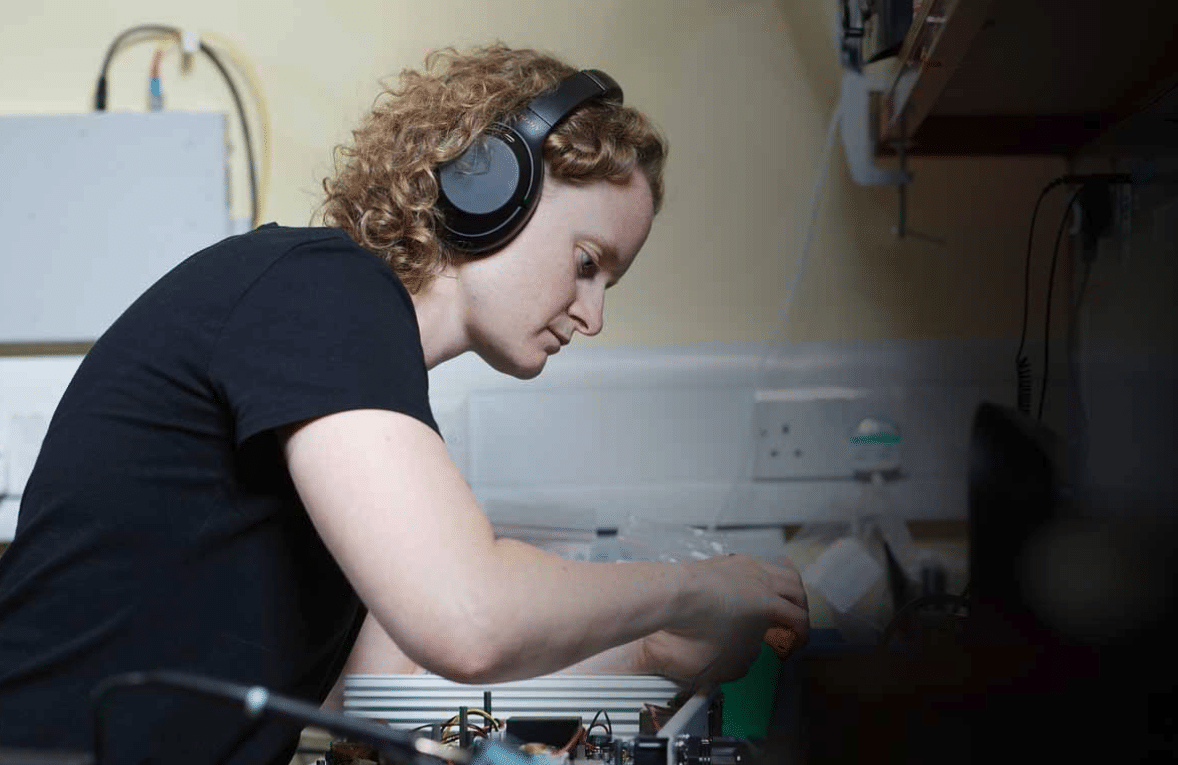 Article originally published by Chromacity
Article originally published by Chromacity
Ever wonder what it takes to build an ultrafast laser system which drives advances in scientific discovery?
We caught-up with our Production Engineer; Ellen Milne, to understand the skills involved in laser manufacturing and how it all began.
“You need a steady hand. The underlying theory on laser physics and basic electronics knowledge is essential, but practical skills are a must”.
“I’ve always been more hands on and wanted a role that reflected that” Ellen explained.
Ellen worked in the photonics industry before joining Chromacity in 2016. Prior to that, Ellen had completed a BSc (Hons) in Astrophysics from the University of Edinburgh and a MSc in Photonics and Optoelectronic Devices from St Andrews and Heriot-Watt University.
“A lot of astrophysics graduates move onto software engineering roles, but I didn’t want to spend my days sitting in front of a computer. The photonics community in Scotland is strong and the MSc was an excellent gateway into this industry, as it focuses more on industrial practices”.
“I already had a few years of experience working with diode-pumped solid-state lasers (DPSS), but it wasn’t until I joined Chromacity that I was exposed to ultrafast fibre lasers”.
After shadowing our Technical Director on full assembly builds, Ellen’s transferable skills became absolutely vital to the company’s growth. Ellen was involved in the manufacture of the first Chromacity 520 – a fixed wavelength laser source that delivers femtosecond pulses with high average power in the green.
On a daily basis, Ellen is involved in the entire laser manufacturing process from liaising with suppliers and procurement, to laser assembly, testing, continuous improvement and onsite installation.
“Manufacturing ultrafast laser systems can be challenging. Splicing fibre together for example, is a very delicate process and we’re often working towards tight schedules to ensure we meet our customer’s timescales”.
“Installing systems and spending time with the customer to learn how our ultrafast systems drive advances in the life sciences make it all the worthwhile”.
Ellen was involved in the manufacture of the Chromacity 1040 which was recently shipped from the UK to a customer in Australia.
“The system required minimal set-up and the install was managed locally, so whereas I was keen to travel to Australia in support, I was delighted that our 1040 showed the robustness to be shipped across the globe and remain operational ready straight out-of-the-box”.
Ellen, who was Chromacity’s first Production Engineer, epitomises our core values to build a positive team spirit and to exceed customer expectations.
When Ellen is not building laser systems, you will no doubt find her on the ski slopes in winter or enjoying long summer evenings with her two cats; Oreo and Norris.
“Working at Chromacity is the best job that I’ve had. It’s a small team but everyone has a strong work ethic and is focussed on the task at hand. The company is growing rapidly and we’re all excited about the future”.
Have you considered a career in laser manufacturing? Are you already working within the photonics industry and would like to learn more about our ultrafast laser systems? We’d love to hear from you: [email protected]
